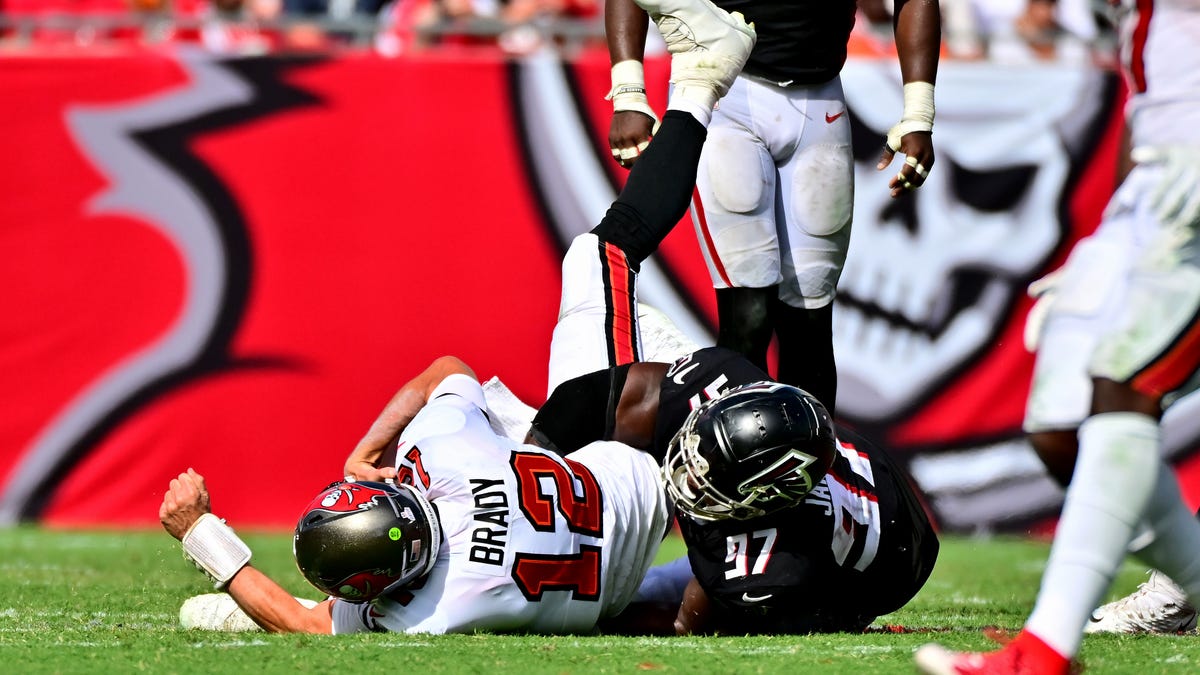The NFL could easily make its unnecessary roughness penalties more tolerable for the masses

Penalties that turned all of social media into Atlanta Falcons fans and made the crowd at Arrowhead Stadium even angrier than when they booed Unity in 2020 are not new. It only feels like the illegal contact to/with-the-head penalties are a result of the NFL being forced to admit the long-term effects of concussions near the beginning of the previous decade, and defenders not being allowed to drive quarterbacks into the ground with their full body weight only became a rule after Aaron Rodgers’ 2017 broken collarbone.
The late Tony Siragusa was fined $15,000 in a playoff game during the 2000 season for falling on top of Rich Gannon. For those who remember Thomas Everett nearly knocking Tom Waddle’s head off of his body in 1994, Everett was flagged for illegal contact to the head.
These rules have since been altered, but what has changed, mostly, is that they became a point of emphasis. The referees are looking for these fouls, sometimes even more than they are looking for false starts and encroachments. Sometimes, it leads to flags being thrown against Grady Jarrett and Chris Jones which only the people on the field wearing Foot Locker shirts agree with. Jarrett simply grabbed Tom Brady around the waist and took him to the ground. Jones literally took the ball from Derek Carr on Monday night before he fell on him, and still tried to use the ground to break his fall. They were both called for roughing the passer. That’s 15 yards and an automatic first down.
NCAA football’s targeting rule gets bashed on social media nearly every Saturday when it’s enforced, because the punishment is punitive. Not only is there a 15-yard personal foul penalty assessed, but the offending player is ejected. It can swing a game, but at least the NCAA takes its time before making such a rash decision. The play must be reviewed by the lead referee on video before it becomes final, and targeting isn’t a situation like other penalties where if it’s close the ruling on the field stands. The referee must confirm that a targeting infraction was indeed committed.
Why can’t this be the rule for unnecessary roughness penalties in the NFL? If nothing else, teams should at least be allowed to throw a challenge flag so the play can be reviewed. Yes, referees are going to err on the side of caution, especially after the media scrutiny the NFL received after Tua Tagavoila’s frightening head injury in Week 3 of this season. And they should.
But if the referees are going to be cautious in real-time, give them a chance to make a thoroughly informed ruling. Yes, unlike college, the NFL players don’t get ejected, but 15 yards is worth a lot more in a league with quarterbacks as talented as Patrick Mahomes and Tom Brady. These unnecessary roughness penalties are called nearly as often as targeting in college so the reviews won’t take up that much more time.
The NFL’s previous dalliance with allowing penalties to be reviewed didn’t go well with pass interference. However, that’s a different type of penalty. The defender’s job in that situation is to prevent the pass-catcher from making the catch. Until a ball makes contact with the pass catcher, contact with that person is not allowed. When the quarterback has the ball in his hands, the defender’s job is to make the play. Unless a player scores or runs out of bounds, the play is not blown dead until the person holding the ball touches the ground, or a quarterback makes a pass attempt or the referee declares the play dead as the QB is “in the grasp” of a defender.
If penalties are going to be called on players performing arguably the most basic, and essential, act in the game, it needs to be clear that they went beyond the call of duty, i.e. unnecessary. The best way to make sure of that, is to let the referees take another look to make sure that they got the call right.
Certainly, the NFL needs to look out for its players, especially those in prone positions like kickers, wide receivers, and quarterbacks. Those players need to be protected, but within reason. As long as tackling is allowed in football, defenders have to be afforded the opportunity to make necessary plays, without shortening the field for offenses that already have the rules titled in their favor.
For all the latest Sports News Click Here

